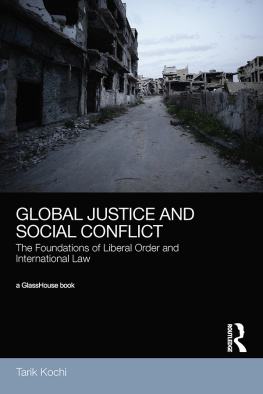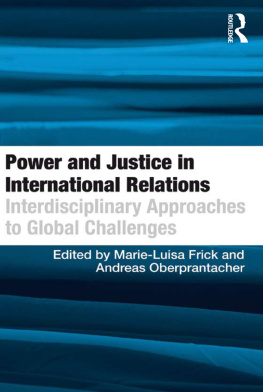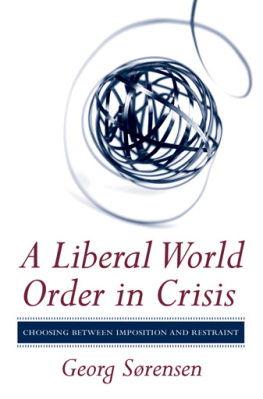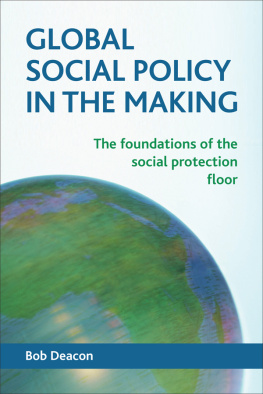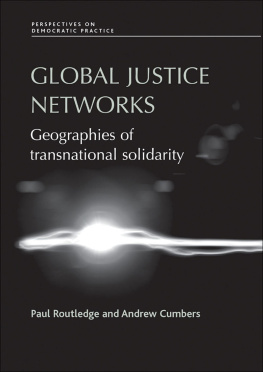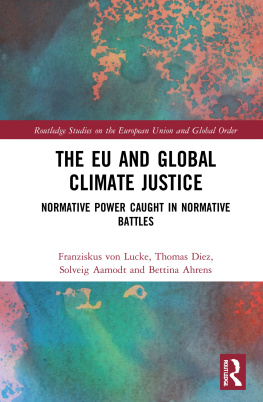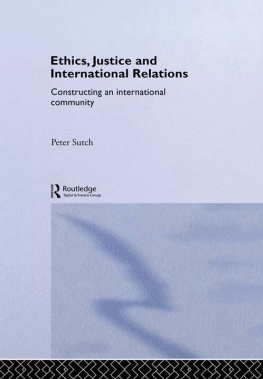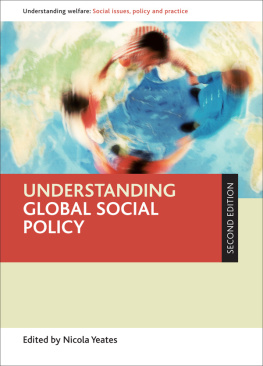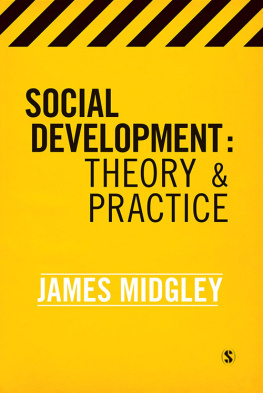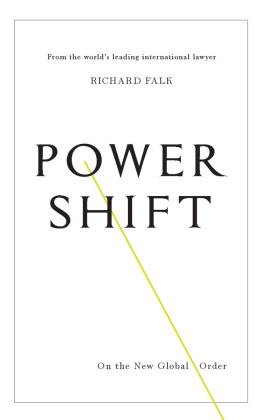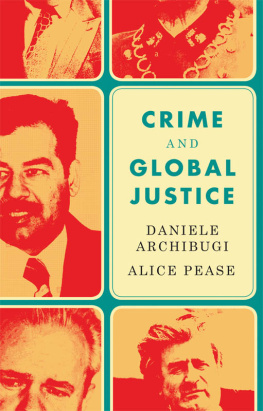Global Justice and Social Conflict
Global Justice and Social Conflict offers a ground-breaking historical and theoretical reappraisal of the ideas that underpin and sustain the global liberal order, international law and neoliberal rationality.
Across the 20th and 21st centuries, liberalism, and increasingly neoliberalism, have dominated the construction and shape of the global political order, the global economy and international law. For some, this development has been directed by a vision of global justice. Yet, for many, the world has been marked by a history and continued experience of injustice, inequality, indignity, insecurity, poverty and war a reality in which attempts to realise an idea of justice cannot be detached from acts of violence and widespread social conflict. In this book Tarik Kochi argues that to think seriously about global justice we need to understand how both liberalism and neoliberalism have pushed aside rival ideas of social and economic justice in the name of private property, individualistic rights, state security and capitalist free markets. Ranging from ancient concepts of natural law and republican constitutionalism, to early modern ideas of natural rights and political economy, and to contemporary discourses of human rights, humanitarian war and global constitutionalism, Kochi shows how the key foundational elements of a now globalised political, economic and juridical tradition are constituted and continually beset by struggles over what counts as justice and over how to realise it. Engaging with a wide range of thinkers and reaching provocatively across a breadth of subject areas, Kochi investigates the roots of many globalised struggles over justice, human rights, democracy and equality, and offers an alternative constitutional understanding of the future of emancipatory politics and international law.
Global Justice and Social Conflict will be essential reading for scholars and students with an interest in international law, international relations, international political economy, intellectual history, and critical and political theory.
Tarik Kochi is a Senior Lecturer in the School of Law, Politics and Sociology at the University of Sussex, UK. He is the author of The Others War: Recognition and the Violence of Ethics (Birkbeck Law Press, 2009) which was awarded the 2010 International Studies Association, International Ethics Section, Best Book Award.
In his new book, Tarik Kochi makes a profoundly important contribution to the critique of liberal international law and order. Holding firm to the view that any account of global justice must by definition be an account of social conflict, Kochi shows the extent to which struggle is at the heart of global relations, and that recognizing this struggle must transform our understanding of liberalism and its law. Against liberalisms violence, Kochi develops an account of constitutional antagonism via an engagement with a diverse set of thinkers, ancient and modern. The outcome is a provocative and compelling argument for an egalitarian and democratic global constitutional order, one that draws upon the radical heritage of struggles for social liberation.
Mark Neocleous, Professor of the Critique of Political Economy,Brunel University, London
In Global Justice and Social Conflict Kochi has achieved an exceptional clarity of critical thought in exploring and explaining the relationship between the claims of global justice, the liberal orderings of international law, and the power and violence of capital accumulation. At the centre of both our modern liberal inheritance, and the contemporary neo-liberal political settlement, argues Kochi, is a longstanding agonism between ethic of sociality and the utility of unsocial private property and commerce. This book charts some of the many responses to this concern. Alongside his reading of the liberal tradition, Kochi also draws out a reading of the Marxist tradition of the quest for justice. He provides an outstanding account of the contest between political public sociality and private gain, along with a clear-eyed understanding of the lure of the claims of any egalitarian and democratic global constitutional order and the relationship of those claims to political economic structures, and violence. By showing the depth of the contest between social ethics and private property Kochi does not so much open new worlds as make our present one intellectually visible.
Sundhya Pahuja, Director, Institute for International Law and the Humanities, University of Melbourne
First published 2020
by Routledge
2 Park Square, Milton Park, Abingdon, Oxon OX14 4RN
and by Routledge
52 Vanderbilt Avenue, New York, NY 10017
A GlassHouse book
Routledge is an imprint of the Taylor & Francis Group, an informa business
2020 Tarik Kochi
The right of Tarik Kochi to be identified as author of this work has been asserted by him in accordance with sections 77 and 78 of the Copyright, Designs and Patents Act 1988.
All rights reserved. No part of this book may be reprinted or reproduced or utilised in any form or by any electronic, mechanical, or other means, now known or hereafter invented, including photocopying and recording, or in any information storage or retrieval system, without permission in writing from the publishers.
Trademark notice: Product or corporate names may be trademarks or registered trademarks, and are used only for identification and explanation without intent to infringe.
British Library Cataloguing-in-Publication Data
A catalogue record for this book is available from the British Library
Library of Congress Cataloging-in-Publication Data
A catalog record has been requested for this book
ISBN: 978-0-415-68347-0 (hbk)
ISBN: 978-0-367-40681-3 (pbk)
ISBN: 978-0-203-09371-9 (ebk)
For Alice.
This work could not have been completed without the care, the strength and the kindness of Alice Smith. Alice and Enver have put up with much throughout the books constant reformulations and I owe them both endless gratitude for being there for me and for making possible the privilege that is the act of writing. Thank you.
Thanks to those who have helped to prompt the patterns of thought and the questions that run through this work. Thanks to Shaun McVeigh, Wayne Hudson, Valerie Kerruish, Costas Douzinas, Mark Neocleous and Emilios Christodoulidis. Thanks especially to Colin Perrin who has taken the time to see this book through from the beginning to the end. Thanks also to those friends and colleagues who have contributed over the years in multiple and different ways to this work. Thanks to Mark Somos, Kimberley Brayson, Bal Sokhi-Bulley, Dan Bulley, Stewart Motha, Scott Veitch, Bob Brecher, Mark Devenney, Karen Brennan, Kenny Veitch, George Pavlakos, Sundhya Pahuja, Bill Bowring, Bill MacNeil, Shaunnagh Dorsett, John Kane, David Dwan, Michael Kearney, Ben Fincham, Elizabeth Craig, Jo Bridgeman, Heather Keating, Sue Millns, Andrew Sanders, Donald McGillivray and Benno Teschke. Thanks to Uwe Peterson and Valerie Kerriush at the Altonaer Stiftung fr philosophische Grundlagenforschung (ASFPG) Hamburg, for creating the space for a number of workshops over the years where the various splinters of this book have been presented and discussed. Thanks also to the families Kochi and Smith. Thanks to Nicola Sharpe at Routledge and to Sarah M. Hall. Thanks finally to the Leverhulme Trust from whom a grant of a Research Fellowship assisted in the writing of this book.
Many would struggle to speak the words

